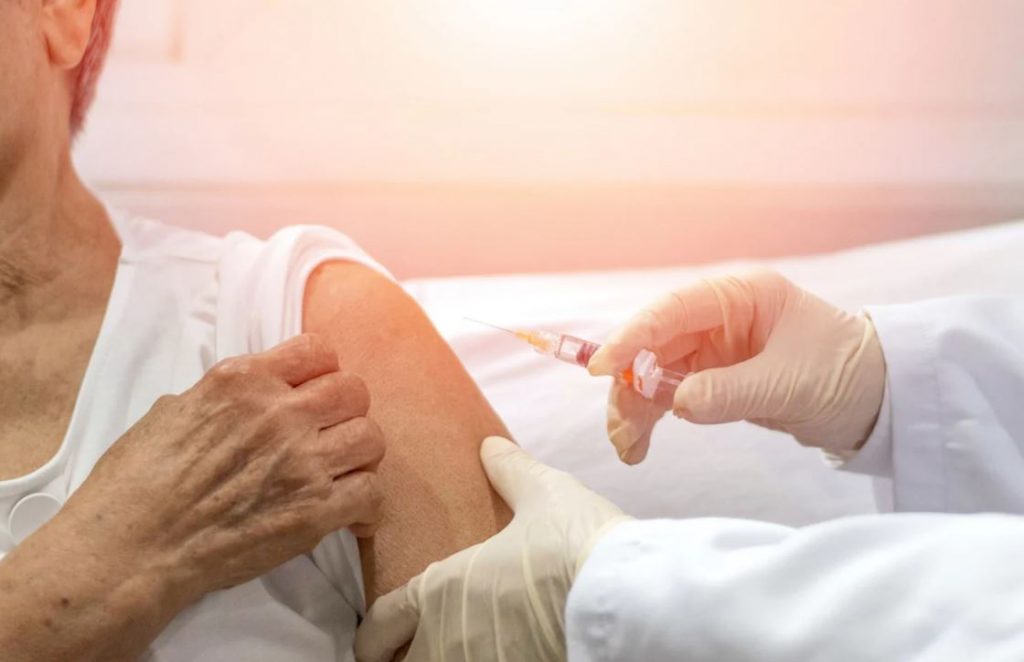
Blog post
Prioritizing Mental Health as a Universal Human Right
By: Neltada Charlemagne, DNP, APRN, PMHNP-BC, PHN, BHC
The immune system you need to best fight off COVID-19
This article first appeared on Next Avenue.

Health professionals have been warning for years that another pandemic was inevitable. They didn’t know when or where it might strike, but they did understand one harsh reality: When it hit, it would take a greater toll on the old than the young. They knew this because virtually every disease takes a greater toll on the old than the young. It is inherent in the way we age.
Aging makes us more fragile, more likely to succumb to almost any serious physical challenge, including falls, traffic accidents, major surgery, or infectious diseases like influenza or COVID-19.
In fact, the pattern of death for this year’s seasonal influenza and COVID-19 is eerily similar.
Four of five Americans who have died from COVID-19 so far are 65 or older even though that age group makes up only a quarter of the American population. One-third of deaths are among people 85 and older and they make up only 5% of the population. For this year’s flu, although the numbers are much smaller, the impact of age is very much the same. As Nobel prize-winning immunologist Peter Medawar put it, “What lays a young man down may lay his senior out.”
A fortunate aspect of these different trajectories of aging is that we have a considerable amount of control over them.
Of course, these numbers are averages. One thing aging does is make us increasingly different from one another. Some 70 year olds are still running marathons or winning chess tournaments; others have a difficult time climbing a flight of stairs or remembering what they had for breakfast.
A fortunate aspect of these different trajectories of aging is that we have a considerable amount of control over them. Study after study demonstrates that no more than 25% of how we age is due to our genes, which we can’t change. The rest is due to our environment — our health habits, in other words — which we can control. Eating right and plenty of physical activity can do wonders.
Aging not only makes us more fragile, it compromises our ability to fight back against many stresses, including the stress of infectious diseases like COVID-19.
A young immune system, like a well-trained army defending against an invading force, deploys powerful weapons in a coordinated attack on specific targets. By contrast, an aged immune system has less powerful weapons fired with less coordination, targeted less precisely and thus is more likely to be overrun by the invaders.
In the worst instances that doctors call a “cytokine storm,” the immune system acts like a panicked army on the run, firing indiscriminately in all directions killing friends as well as enemies.
As discussed in a the recent webinar hosted by AFAR (and co-promoted by Next Avenue), Expert Secrets to Aging Well, to best fight off COVID-19 as well as other infections, you need not only a stronger immune system, you need a well-coordinated and well-targeted immune system. In other words, a younger immune system.
Fortunately, even though aging is an inevitable and natural process, researchers are discovering ways to treat that process as if it were a disease, to extend youthfulness, including a youthful immune system.
About a dozen medications have been discovered that have a youth-extending effect in laboratory animals. One of these has already been tested in older people and found to enhance the effectiveness of flu vaccinations.
To be effective, vaccinations require a well-functioning immune system. (For more on this, see the recent report published by AFAR on opportunities and obstacles to adult vaccinations.)
We should bear this in mind as we all wait anxiously for the development of an effective COVID-19 vaccine.
This is a good time to remember that medically targeting basic aging processes not only promises to enhance and prolong health in good times, it also promises to protect us against emerging infectious diseases like COVID-19 and whatever the next pandemic turns out to be.

By: Neltada Charlemagne, DNP, APRN, PMHNP-BC, PHN, BHC

Older adults can safeguard themselves from the physical, mental and emotional toll of unexpected medical costs.

Optum Care Network – Monarch has teamed up with Landmark to deliver in-home medical care to members with multiple chronic conditions.